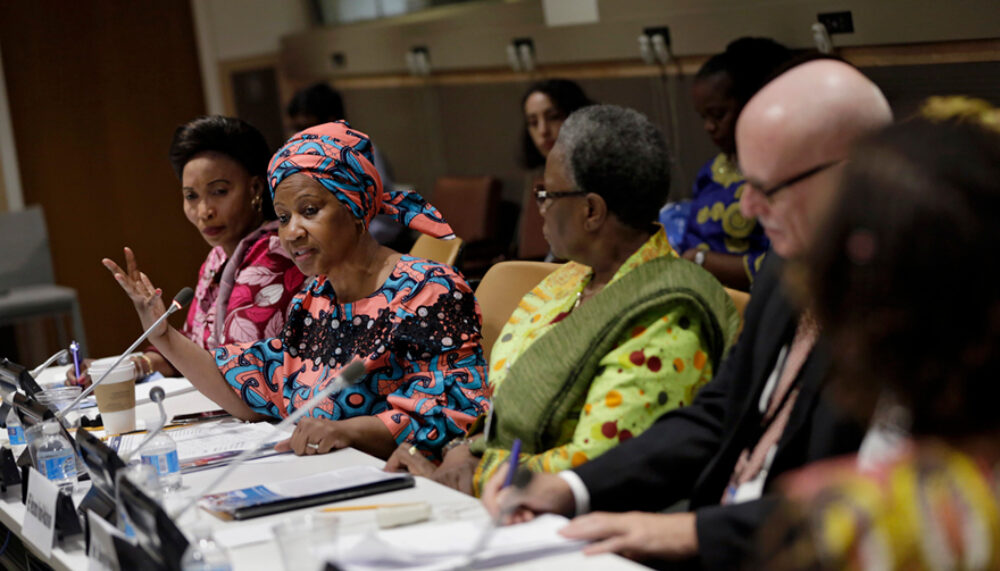BLOG POST | 29 Oct 2020
UNSCR 1325 turns 20
Achievements and remaining challenges

Twenty years ago, the UN Security Council launched its landmark Resolution 1325 on Women, Peace and Security.
By Véronique Dudouet
Twenty years ago, the UN Security Council launched its landmark Resolution 1325 on Women, Peace and Security (WPS), with the aim of protecting women during conflict and strengthening their peacebuilding agency. The four pillars of the WPS agenda are concerned with:
- The role of women in conflict prevention;
- Their participation in peace(building) processes;
- The protection of their rights during and after conflict; and
- Their specific needs during repatriation, resettlement and for rehabilitation, reintegration and post-conflict reconstruction.
Since 2000, tremendous progress has been made in supporting women’s inclusion and leadership in peace negotiations and post-war peacebuilding efforts, recognising their diverse aspirations for conflict transformation – as mothers, caretakers, victims, politicians, experts, activists, or combatants. Many UN member states have developed comprehensive national action plans to implement the WPS objectives, notably by enhancing women’s participation in formal peace processes and promoting gender-inclusive outcomes.
It is imperative that we gain a more nuanced understanding of the various ways in which women join and participate in conflicts...
These are highly commendable initiatives, given the strong empirical evidence showing that women’s participation as negotiators, mediators, witnesses, and signatories of peace agreements increases the quality and durability of peace. The inclusion of women from diverse parts of society also broadens the range of perspectives and ensures that the root causes of conflict are addressed in the design as well as in the implementation of peace processes. In fact, according to the Peace Agreements Database (via UN Women), the proportion of peace agreements with gender equality provisions increased from 14 to 22 per cent between 1995 and 2019.
Yet, in many conflicts around the world, women continue to be excluded from peace efforts and political transitions because of discriminatory laws, social stereotypes or institutional obstacles. Powerful elites often resist the meaningful inclusion of women’s voices and gender rights in peace talks, and external partners and donors lack the required resources and political will to enforce these principles. There remains a real disconnect between their policies on UNSCR 1325 and their actions, aid programs, and diplomatic interventions in conflict settings.
Moreover, by focusing solely on the protection of women and girls, peacebuilding support programmes often perpetuate a restrictive narrative that reduces women to the role of victims. It is imperative that we gain a more nuanced understanding of the various ways in which women join and participate in conflicts in order to seize opportunities to translate their war-time agency into constructive contributions to conflict transformation, and ultimately prevent recurring conflict and enable sustainable peace.
The Berghof Foundation, together with our partners, supports efforts to fill the remaining gaps in the WPS agenda, by exploring the distinct roles and aspirations of women associated with armed groups, and by facilitating their meaningful participation in conflict transformation. Read more about our work supporting women in resistance and liberation movements in peace processes and during post-war transition here. To hear female ex-combatants tell their stories to each other, listen to their voices here. In addition, we also pursue a preventive strategy by examining and promoting gender-sensitive approaches to the prevention of violent extremism, and emphasising women’s leadership in building resilient communities. Visit the website of our current research project and read more about how to apply a gender lens when planning and implementing programmes to prevent violent extremism here.
Media contact
You can reach the press team at:
+49 (0) 177 7052758
email hidden; JavaScript is required


